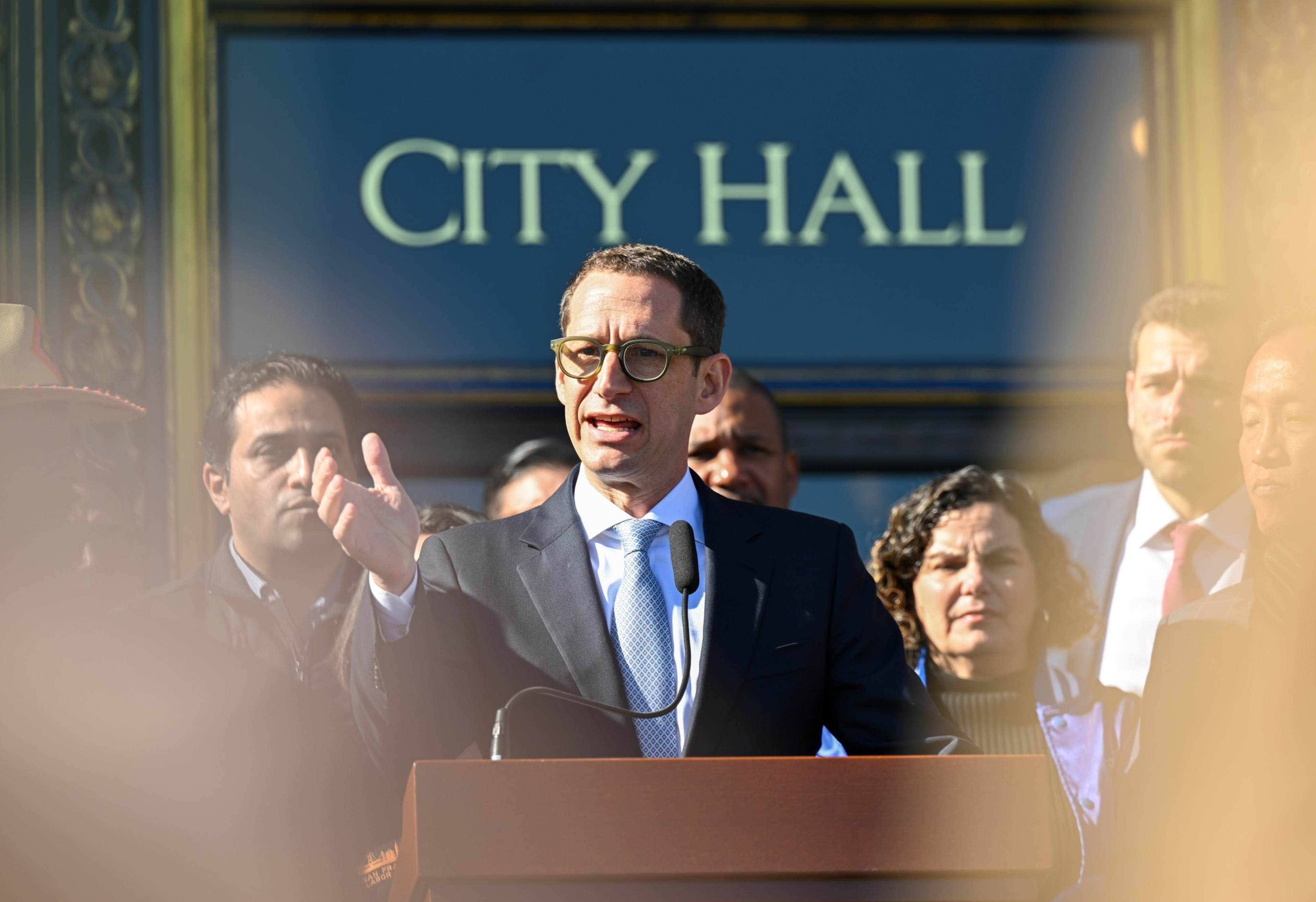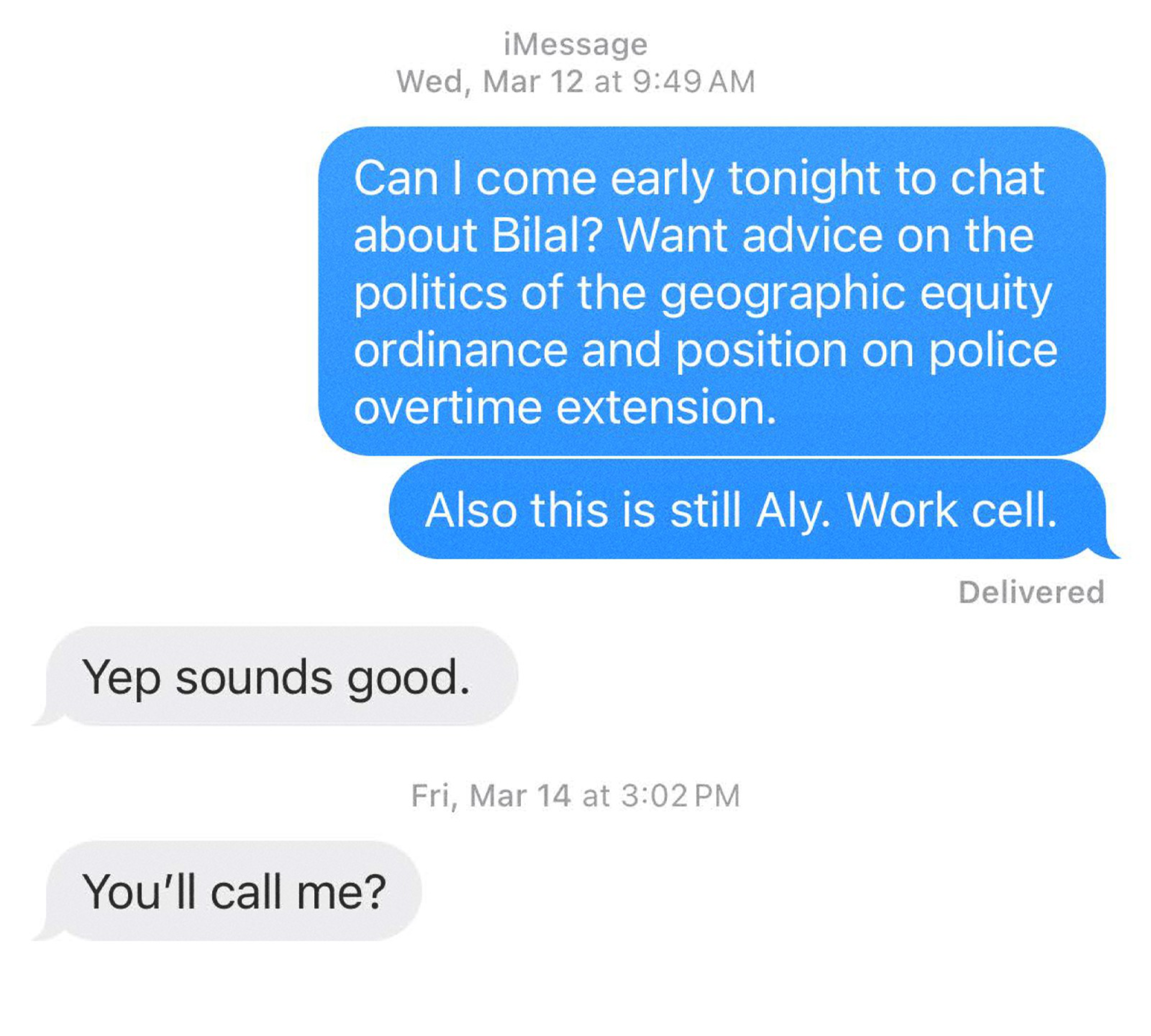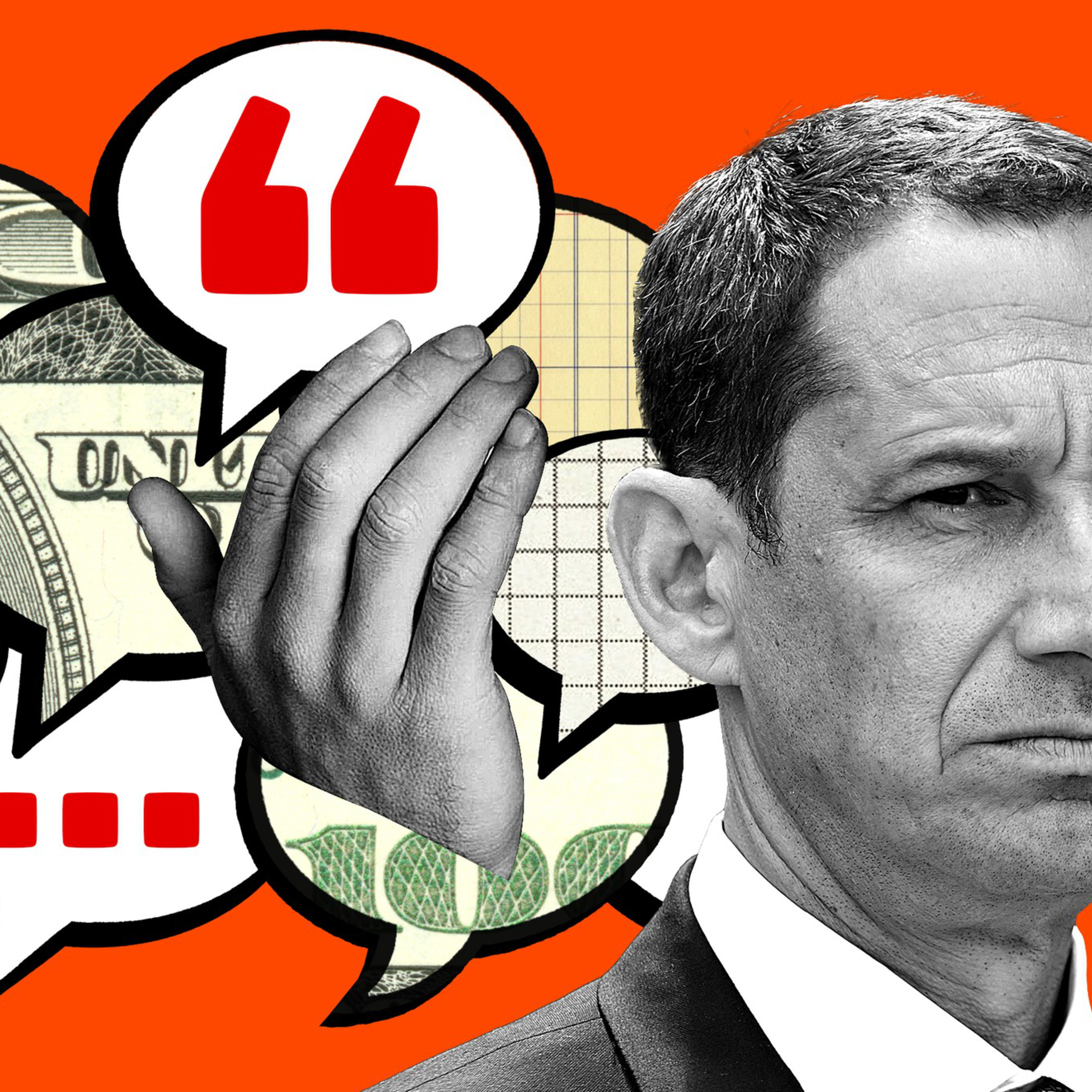Texts started rolling into Mayor Daniel Lurie’s phone soon after dawn on June 12. The mayor had multiple events to attend that day, including the opening of a community center in SoMa with United Playaz, an organization dedicated to ending gang violence.
“Just lead with your heart today in this speech,” Jennifer Pitts, his longtime speechwriter, wrote to the mayor at 7:39 a.m. “Commanding where you need to be but let it be authentic more than it is perfect.”
Pitts, “a leading expert in storytelling, fundraising, executive communications, and event design,” according to her online biography, runs Matchstick Communications, a firm that helps public figures tailor their messaging.
“You bring the spark, we fan the flame,” the company’s website (opens in new tab) reads. “Just because you’re amazing at what you do, doesn’t mean you know how to talk about it.”
In last year’s mayoral race, Pitts was part of a team of campaign consultants and communications gurus who successfully pitched Lurie as a political outsider best suited to reform City Hall in a race against four veteran politicians. Lurie, a nonprofit founder, paid for those aides with a portion of the record $9.5 million he dumped into his campaign from his personal funds as an heir to the Levi Strauss family fortune.

Nearly nine months after the election and six-plus months into his term, financial disclosures filed Thursday show that Lurie’s campaign — fueled by his own wealth — continues to bankroll a squad of consultants at unprecedented sums.
Since his January inauguration, Lurie has plunked a whopping $440,000 into his 2024 campaign account, with $350,000 going toward political advisers. The payments include $40,000 to Matchstick and Pitts; $170,000 to campaign spokesperson Max Szabo, who runs an eponymous communications firm after working in the San Francisco district attorney’s office; almost $100,000 to political consultant Tyler Law, a partner at Thematic Campaigns; and $40,000 to political consultant Lis Smith, who handles national media and helped secure Lurie an appearance on “Good Morning America.”
According to Lurie’s advisers, some of this money is tied to bonuses from the 2024 campaign, though the disclosure forms do not specify how much. Pitts and Szabo declined to comment.
Text messages and emails spanning more than 300 pages between the mayor, his City Hall staff, and his campaign advisers — obtained by The Standard through a public records request — reveal how these aides have helped the mayor cultivate his public image, court positive press, map out political strategy, and aggressively tout the narrative that San Francisco is on the upswing.

“It is a shadow consultant government,” said Aaron Peskin, a former president of the Board of Supervisors who finished third in last year’s mayoral race. “This is all Lurie Inc.”
Four recent mayors — London Breed, Ed Lee, Gavin Newsom, and Willie Brown — received regular guidance from outside advisers free of charge, sources said, with the expectation that these consultants might be on the payroll in future election cycles.
Eric Jaye, a close adviser to Gavin Newsom when he was San Francisco’s mayor, said he was never paid as a consultant in non-election years and was instead treated as a volunteer. Breed’s campaign filings show that she paid consultant Maggie Muir more than $17,000 the year following the 2019 election, but most of those charges were for mailers sent during the campaign.
Jim Ross, a San Francisco consultant who ran Newsom’s first mayoral campaign in 2003, said the fact that Lurie’s outside advisers are being paid on an ongoing basis means they “are going to be much more involved in the governance of the city and policy decisions being made by the mayor” than those who advised previous administrations.
‘The last three mayors now, none of those mayors had the resources that our current mayor has. It is not an apples-to-apples comparison.’
Joe Arellano, former staffer to Mayors Gavin Newsom and London Breed
"While mayors have won the campaign and then moved to running the city, this sounds like there’s a permanent campaign for mayor going on in San Francisco,” Ross said.
Charles Lutvak, Lurie’s spokesperson, declined to comment or make the mayor available for an interview. But in a statement Law provided Thursday, Lurie defended his use of outside consultants.
“When I ran for mayor, I promised to listen to perspectives from outside of City Hall, and as mayor, that’s how I’m governing,” Lurie said. “My entire team shares an unwavering commitment to San Francisco’s success.”
‘Not an apples-to-apples comparison’
Lurie’s outsider status may have propelled him to the mayor’s office, but it also put him behind the curve in understanding how to govern City Hall.
The city budget includes $11.6 million for the mayor’s office, which funds salaries for a team of workers. Lurie added four policy chiefs who coordinate multiple departments. They are taxpayer-funded positions, and some are required to file economic statements of interest every year and disclose possible conflicts of interest.

Lurie has repeatedly turned to his outside consultants to help navigate his mayoral responsibilities, from speaking at public events and drafting a formal letter on the budget to overcoming political vulnerabilities. And so, it seems, has his staff.
On March 12, the mayor’s policy adviser, Aly Bonde, contacted Law seeking guidance on controversial legislation limiting the number of homeless shelters in certain neighborhoods. The mayor’s office opposed the initial legislation from Supervisor Bilal Mahmood, who argued that his Tenderloin district has an oversaturation of shelters and that other areas in the city should shoulder some of the burden.
“Can I come early tonight to chat about Bilal?” Bonde wrote to Law, asking for “advice on the politics” of the bill. The mayor’s office ended up softening the shelter plan to a suggestion but deftly navigated any hard feelings by describing it in a press release as a win for Mahmood.
On April 30, weeks before Lurie unveiled his first budget proposal — one of his first major political tests — Pitts wrote an email to set up a meeting with some of Lurie’s top staffers, including his chief of staff, Staci Slaughter, Bonde, and Lutvak, along with Law and another Matchstick staffer.

“Writing to find time to get us together next week at City Hall to do a first round deep dive on budget,” Pitts wrote. Lutvak, who, as Lurie’s spokesperson, handles media requests and shapes the mayor’s public narrative, offered his availability but acknowledged that he’s “not most important.”
It wasn’t the first time that Lutvak and other City Hall aides have ceded control to Lurie’s outside team.
Records show that Szabo worked with the mayor’s staff in recent months to secure Lurie a February spot on KQED’s radio program “Forum,” a Politico podcast, a fireside chat with TechCrunch, and a speaking engagement at a CNBC event. In March, Szabo and Lutvak coordinated a TV interview for KTVU regarding OpenAI’s office opening. Sam Altman, chief executive of OpenAI, served on Lurie’s transition team.
Szabo’s staffers Nini Wu and Olivia Huyler are on a private Signal chat with mayoral staffers. In-house communications managers Annie Gabillet and Haakon Black handle the mayor’s social media, while Szabo’s firm provides videoclips.
Joe Arellano, a communications consultant who worked on Breed’s campaign last year after serving in Newsom’s mayoral administration, said many city employees are underpaid for the hours they work, and Lurie’s willingness to spend his own money could be seen as adding value to the city.
“The last three mayors now, none of those mayors had the resources that our current mayor has,” Arellano said. “It is not an apples-to-apples comparison.”
While no conflicts of interest have been identified, and Lurie’s consultants do not lobby City Hall, they have gained politically active clients, including some connected to the mayor. Szabo, for example, added Tipping Point, Lurie’s former nonprofit, as a client this spring. In January, Law became a senior adviser to the moderate political group GrowSF, which co-endorsed Lurie’s 2024 campaign and frequently conducts political polling and publishes voter guides. Law and Szabo declined to share their complete client lists.
Sean McMorris, an ethics expert from the good governance nonprofit Common Cause, said Lurie’s teams within and outside of City Hall do not appear to be violating any rules. However, he cautioned that conflicts could arise if the mayor’s consultants have other clients that have business before the city.
“They should not be advising on, or being tapped for, anything that has to do with day-to-day governing,” McMorris said.
Polling shows that Lurie’s PR strategy is working. More than 70% of those surveyed in a recent San Francisco Chronicle poll (opens in new tab) said they approve of the mayor overall, even as they gave him lower marks for his handling (opens in new tab) of the homelessness and drug crises.
In a statement, Law said he was “proud of our work to elect Mayor Lurie last year.”
He added, “And we’re honored to help the mayor tell the story of San Francisco’s comeback.”

